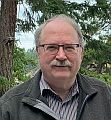LIVING WATER SMART IN BRITISH COLUMBIA: “We all learn through stories. Every edition of Waterbucket eNews is built around a conversational interview,” stated Kim Stephens, Executive Director, Partnership for Water Sustainability

“In these challenging times, it is imperative that we offer hope. Sharing stories of people’s experiences is valuable for inspiring others. Each week, we start with a compelling quotable quote and delve into the story behind the story. During the past 3-month period, the Partnership has published 11 feature stories. This edition constitutes our “season in review”. We have kept it simple. To refresh reader memories about the topics and how much ground we have covered, we have brought forward the headline plus defining quotable quote from each of the 11 storylines,” stated Kim Stephens.










